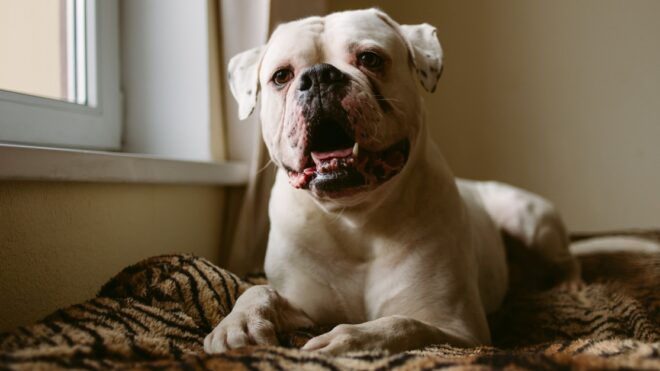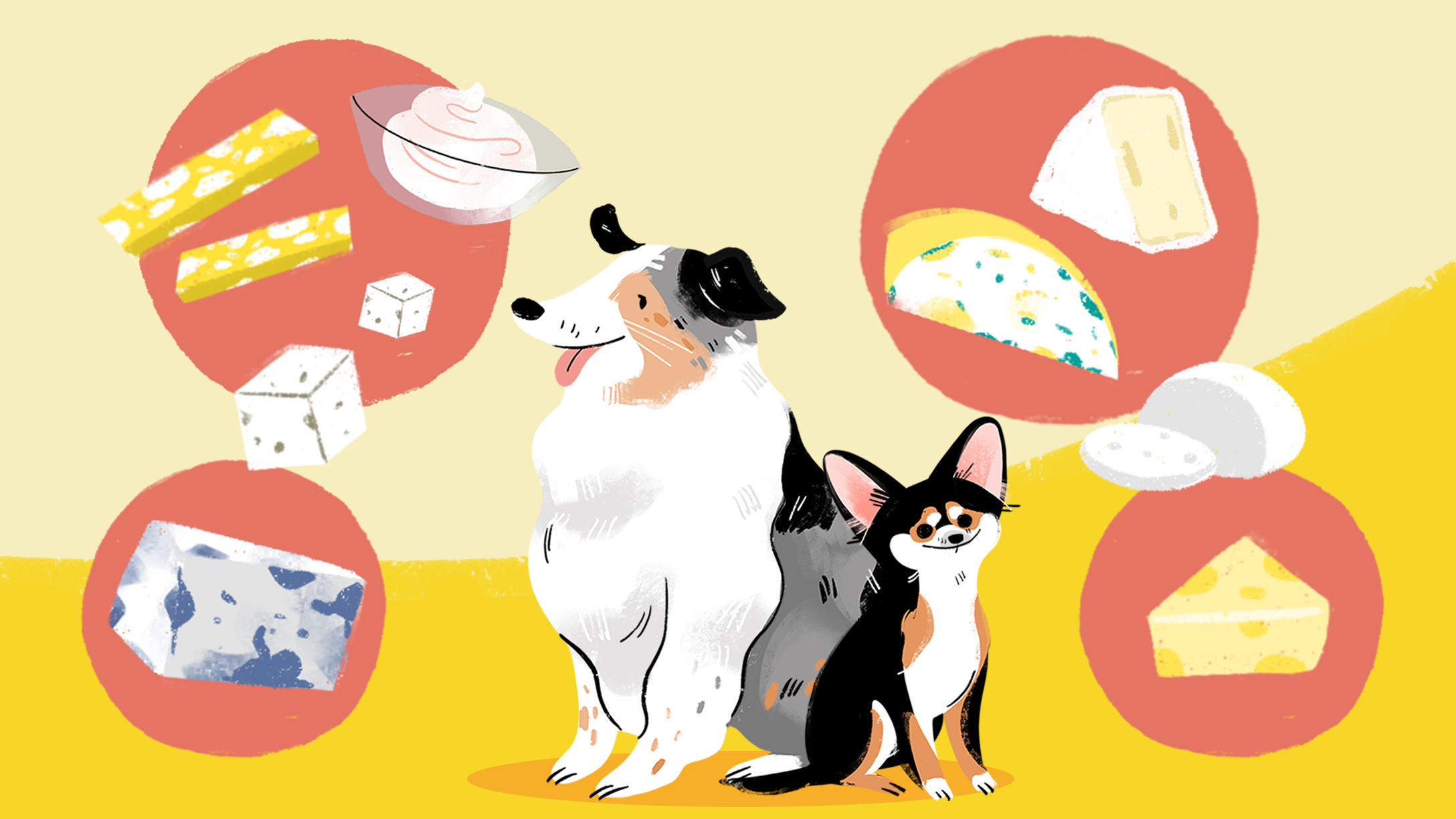
Dogs of all kinds pretty much go crazy for cheese. But no matter how much they love it, we as owners have to stop and consider if it can be bad for them in any capacity.
Many human foods that seem like they would be safe for your furry friend can actually be harmful if you give them too much. When it comes to feeding your dog cheese, some types are better than others. To stay healthy and enjoy a long life, it’s important for your dog to maintain a low-fat, low-sodium diet, which is simply not compatible with eating large amounts of cheese.
More from LittleThings: Give Your Boss These 8 Reasons Why Dogs Should Be Welcome At The Workplace
That’s why, outside of the occasional chunk of cheese to hide medication in or use as a reward, you may want to tell your dog, “nacho cheese!” just like the joke says. Read on to find out why it’s better to give your pet this delicious treat in moderation.
Can Dogs Have Cheese?

As much as dogs love it, there are very few health benefits of giving them cheese. It’s true that cheese contains some calcium, but it also has tons of saturated fat, which can quickly lead to weight gain. And since cheese is a dairy product, there’s a good chance that it’ll upset your dog’s stomach.
At worst, this could lead to diarrhea or even pancreatitis. At best, it’ll certainly lead to a series of room-clearing toots — be prepared, these are pretty standard!
Good Cheese For Dogs
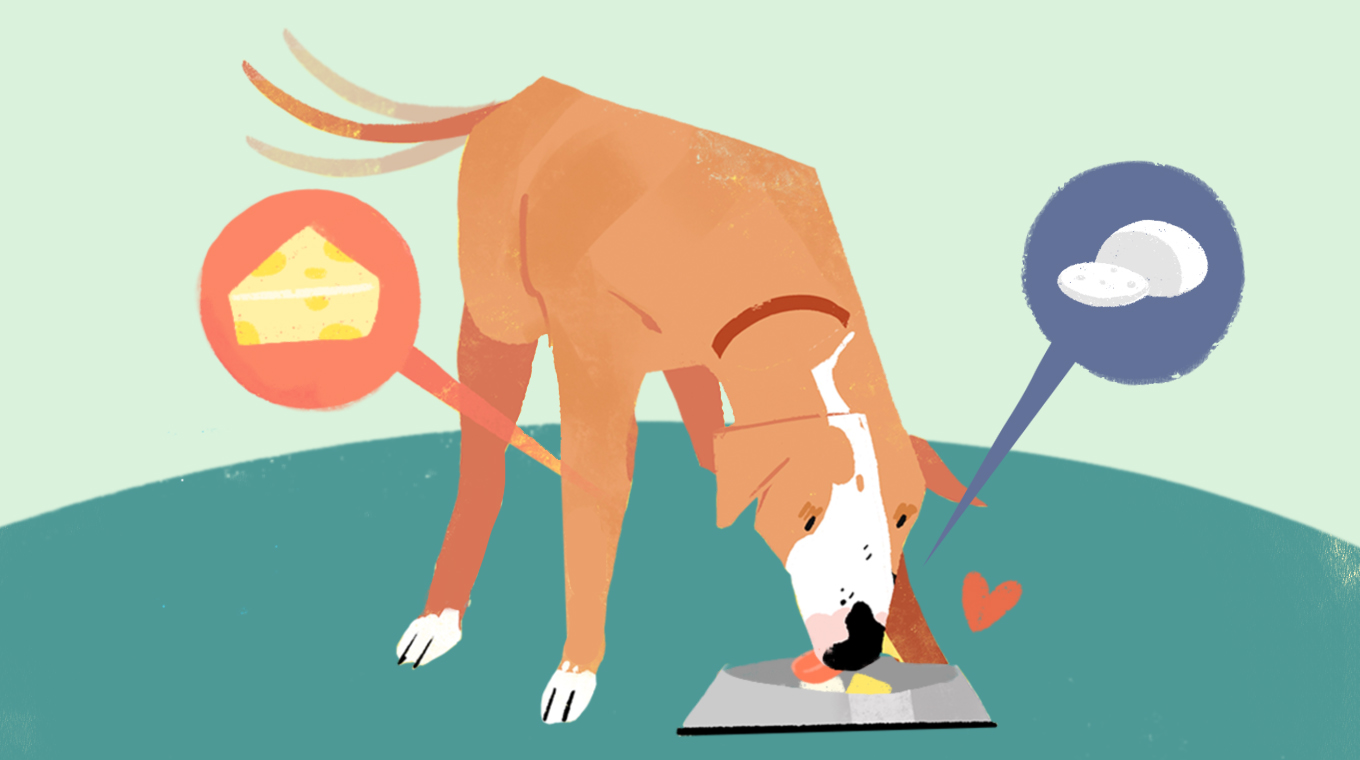
The Pets4Homes website promotes small amounts of cheese for what they call “high-value rewards.” According the website, “A high-value reward when it comes to training is something that your dog is very keen to get and will work hard for, and that should be given sparingly in order to retain the value of the reward; if your dog is given cheese often, or in high quantities, it will lose its inherent value to your dog, as it becomes too commonplace!”
We love this idea as a way to share a snack that your pup will love while also improving her behavior or teaching her a new trick! If you’re wondering, “can dogs have Colby Jack cheese, Monterey Jack cheese, and Swiss Cheese?” the answer is yes. These make good cheeses for this high-value method, since they’re lower in lactose than other types. Some other cheeses that are low in lactose include string cheese and cheddar cheese. And, as the website advises, remember to use them very sparingly!
How About Cottage Cheese?
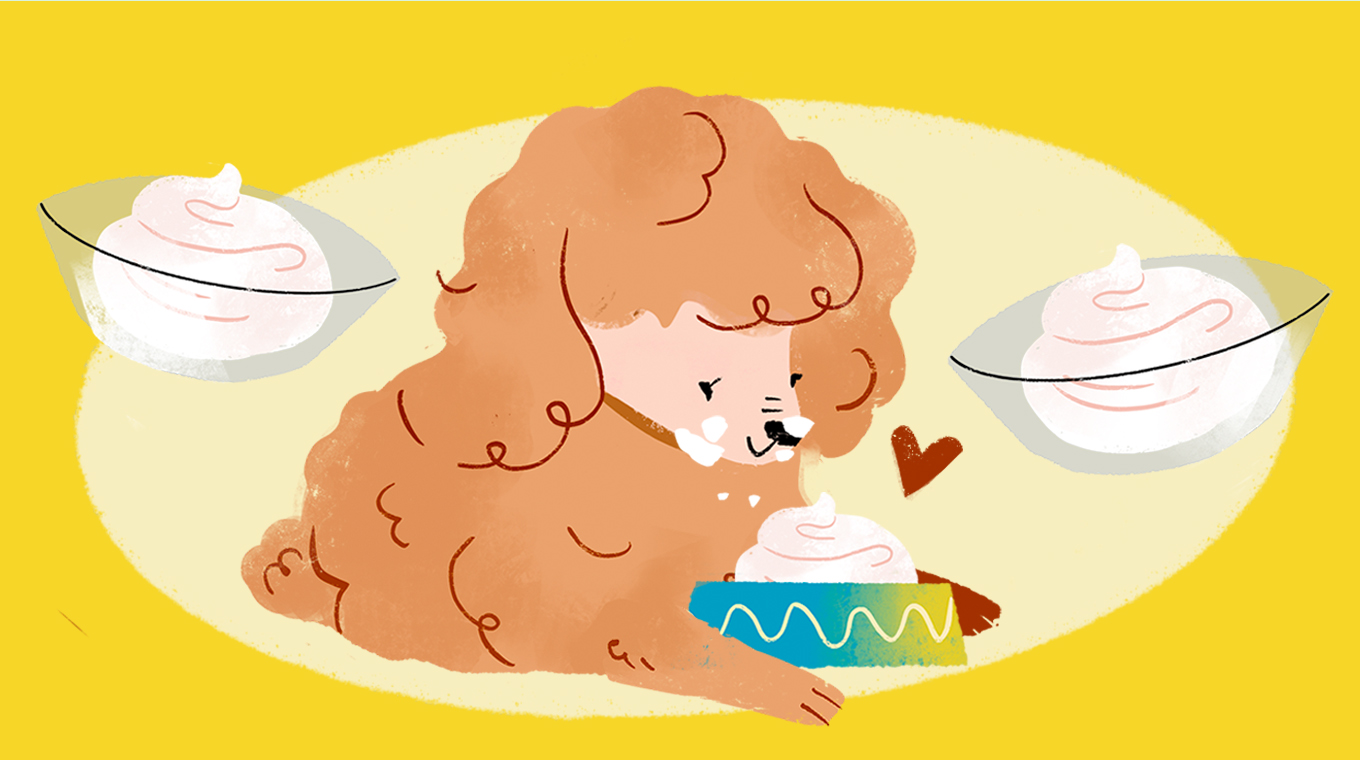
Cottage cheese is another one of the best cheeses to share with your furry friend, albeit in small amounts.
“For a non-lactose-intolerant dog, a teaspoon of cottage cheese won’t harm them,” says Dog Pack. “Out of all the various types of cheese, cottage cheese is the least harmful as it’s lower in fat than other kinds of cheese, and it can be a good source of protein if you have a dog that suffers from protein-losing enteropathy.”
Bad Cheese For Dogs
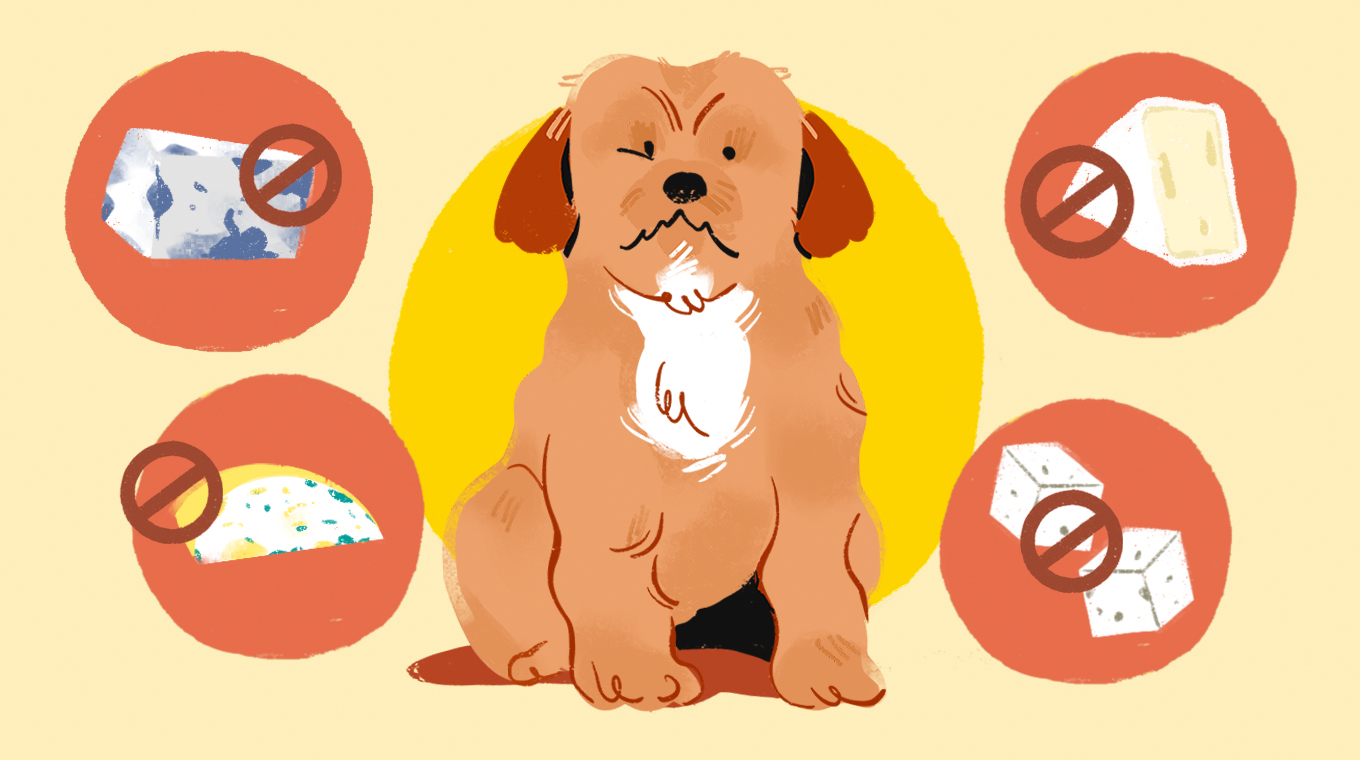
According to the American Kennel Club, “Fatty, rich cheeses, and cheeses that contain herbs or food items harmful to dogs like garlic can cause intestinal upset.” In keeping with the AKC’s advice, there are several types you’ll want to stay away from, mostly to avoid excessive weight gain and gastrointestinal upset. Here are a few cheeses to avoid.
Blue cheese, Roquefort, and other French cheeses – Dog Pack advises that dog owners skip these cheeses not only because of their high fat content but also because “When blue cheese starts to get super-ripe, it can produce roquefortine, a potentially lethal toxin for dogs to consume.” In addition, these cheeses tend to be among the highest in sodium.
Cheese with herbs, garlic, or other flavorings – Many types of cheese, such as Havarti, or even cream cheese, contain herbs or garlic to enhance the flavor. Keep these out of your dog’s reach since some of their additives can be dangerous — garlic and onions are both toxic for dogs.
Brie, goat cheese, and feta cheese – It’s best to avoid these, even though they taste delicious for us. They also contain some of the highest saturated fat levels of any cheese. Excessive amounts of fat in a dog’s diet can lead to pancreatitis, a serious and often life-threatening condition in dogs.
How Much Cheese Specifically?
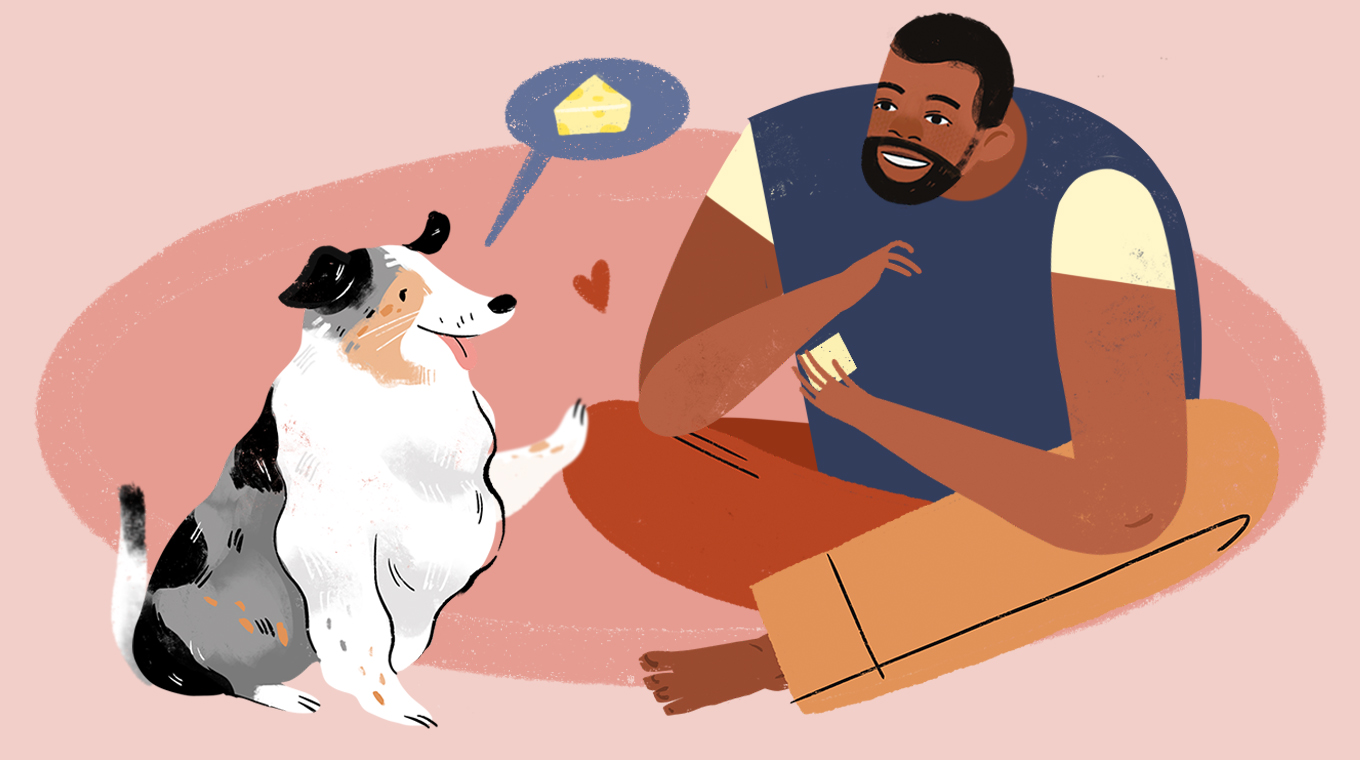
Regardless of whether you’ve decided to give your dog cheese as a treat, to use it as a reward for training, or to use it to help your dog gain weight, you should refrain from giving too much. Just a couple pieces on occasion, meaning not every single day, should be fine, and your best furry friend will love you for it.
Cheese Experiment
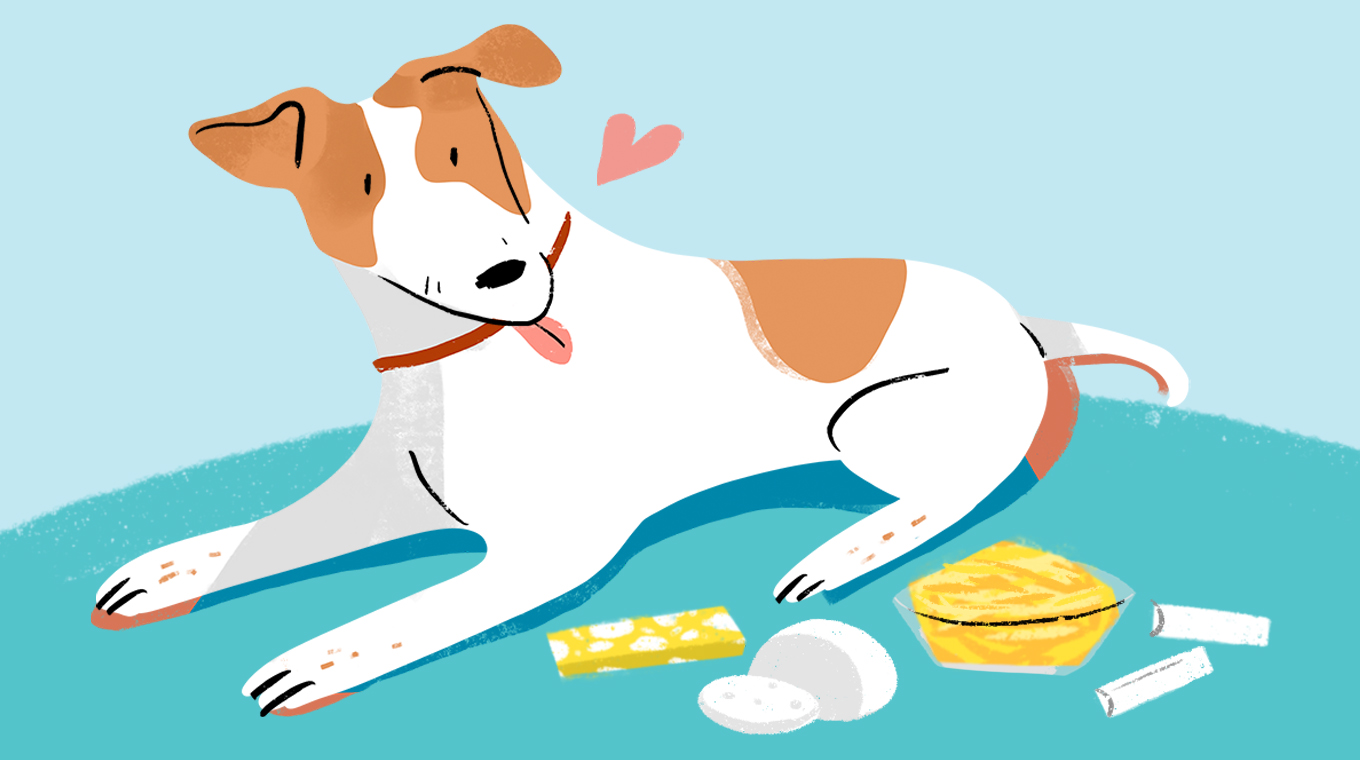
My dog is 11 and we don’t give her many “human food” treats, so for the purpose of this article, my daughters and I did a cheese experiment with her.
We put tiny amounts of four different cheeses on a platter. We used Colby Jack, fresh mozzarella, shredded cheddar, and tiny slices of a cheese stick. My dog isn’t much of a chowhound at her old age, but she sniffed all the cheeses and then scarfed the Colby Jack and mozzarella pretty quickly. Why do dogs like cheese so much? I don’t know for sure, but my dog seemed to follow her nose, so maybe it’s the strong scent that cheese typically has.
If your pup loves the occasional cheesy snack as much as mine does, please SHARE this article with friends and family on Facebook!



